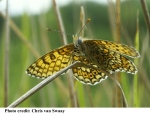 Contrary to the general belief, negative biodiversity trends are slowing down (or even recovery setting in) for several taxa during the most recent decades, shows a recent study published in Ecology Letters. The study mentions that while several other drivers may also play a role, the results suggest that conservation efforts may be paying off. Contrary to the general belief, negative biodiversity trends are slowing down (or even recovery setting in) for several taxa during the most recent decades, shows a recent study published in Ecology Letters. The study mentions that while several other drivers may also play a role, the results suggest that conservation efforts may be paying off.
The research partially funded by the EU FP 7 funded projects STEP and SCALES compares four 20-year periods, comparing periods of rapid land-use intensification and natural habitat loss (1930–1990) with a period of increased conservation investment (post-1990). The analysis proves that extensive species richness loss and biotic homogenisation occurred before 1990, whereas these negative trends became substantially less accentuated during recent decades, being partially reversed for certain taxa
Ongoing species richness loss and biotic homogenisation are a growing concern for society. The increasing awareness of the role of human activities in these declines and their potential impacts on our health, food supply, ecosystem services and well have led to policy changes towards the protection of biodiversity, many implemented after 1990. Most agree that policy targets have not been met since but in the absence of standardised long-term monitoring programmes it is difficult to assess if biodiversity loss trends are changing.
Focusing only on native species assemblages, the research applies robust richness estimation methods to evaluate richness changes during the past 80 years in three European countries at multiple spatial scales and to show that during periods of higher investment in conservation are associated with deceleration of pollinator decline.
See Attached files here:
|
